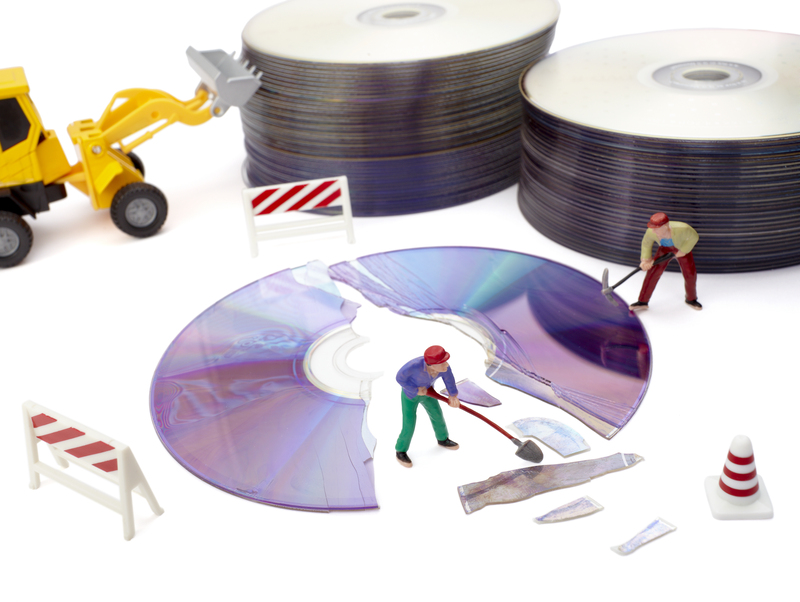How to Avoid High Costs When Removing Bulky Waste: A Comprehensive Guide
Bulky waste removal is a common, sometimes daunting, problem for homeowners, renters, businesses, and property managers. Whether you are renovating, moving, decluttering, or simply getting rid of old furniture and appliances, understanding how to avoid high costs when removing bulky waste can save you a significant amount of money and stress. In this guide, we'll take you step-by-step through effective strategies, lesser-known tips, and crucial considerations to help you manage bulky waste cost-effectively.
Understanding Bulky Waste and Why Costs Can Skyrocket
Bulky waste refers to large items that cannot easily fit into standard household bins, such as:
- Old furniture (sofas, wardrobes, beds, desks, chairs)
- Household appliances (fridges, washing machines, ovens)
- Mattresses and carpets
- Garden waste (branches, shrubs, fencing)
- Construction debris (bathtubs, toilets, doors, windows)
Why does the cost of bulky waste removal add up? Several factors can inflate the price:
- Item volume and weight
- Labor requirements (carrying, dismantling, loading)
- Distance to disposal/recycling centers
- Disposal fees and landfill charges
- Special handling for hazardous waste or electronics

Key Strategies to Reduce Bulky Waste Removal Costs
1. Plan Ahead and Assess Your Bulky Waste
Start by making an inventory of all large items you need to dispose of. Sort items by type (e.g., wood, metal, appliances), and their condition. This helps you:
- Estimate the volume and labor involved, providing a basis for quotes
- Identify reusable, sellable, or donatable items
- Spot materials that require special handling
Tip: Photograph bulky items for sharing with removal services or potential buyers/donors.
2. Repurpose, Sell, or Donate Usable Items
The most effective way to reduce the cost of bulky waste removal is to reduce the quantity you pay to dispose of. Before considering removal services, see if you can:
- Sell items in decent condition on platforms like Craigslist, Facebook Marketplace, Gumtree, or a local classifieds website.
- Donate to local charities, non-profits, shelters, or community organizations. Many offer free pickup services for furniture, appliances, and electronics.
- Repurpose items for personal use, upcycle into something else, or offer for free via neighborhood groups or 'freecycle' networks.
Underlining this point: the less you have left to haul away, the more you save on collection and disposal costs!
3. Use Your Local Council's Bulky Waste Collection Service
Most cities and municipalities offer some form of council bulky waste collection, often at reduced rates or even free of charge (up to a certain limit). Here's how to make the most of these services:
- Check eligibility: Requirements differ by region. Look up what is accepted, excluded, and any limits on frequency or volume.
- Book ahead: Collection slots may have lead times, so schedule early, especially during peak seasons.
- Sort and group items: Council crews typically won't dismantle large furniture or carry items from inside. Place items where specified and consolidate for fewer collections.
- Be aware of restrictions: Some councils do not accept construction debris, hazardous waste, or certain electronics. Confirm what's allowed.
Important: Overfilling your allocated slot or ignoring restricted materials can result in fines or uncollected waste--leading to extra costs.
4. DIY Disposal: Leverage Your Local Recycling Centers
If you have access to a vehicle or can borrow one (or a trailer), consider taking your bulky waste directly to a local recycling center or tip. Advantages include:
- Usually free or low cost for residents (check identification requirements)
- Broader acceptance of sorted materials
- Opportunities to recycle and avoid landfill fees
Pro-tip: Coordinate with neighbors, friends, or family who are also decluttering. Share vehicle space and split costs for disposal or van hire, making the process cheaper per item.
5. Compare Bulky Waste Removal Companies and Quotes
If council or DIY solutions aren't feasible, look for professional bulky item removal companies. Prices vary widely, so:
- Seek at least 3 quotes--provide photos and details for accuracy
- Ask about volume-based pricing versus per-item charges
- Check for minimum charges, additional labor fees, or charges for stairs/lifts
- Select reputable, insured, and properly licensed operators
- Look for companies prioritizing recycling and ethical disposal
Note: A slightly higher quote might save money overall if it includes extra services (e.g., dismantling, sweep-up, and responsible recycling).
6. Pool Resources and Organize Community Clean-ups
Many bulky waste items accumulate in residential blocks, neighborhoods, or shared buildings. Consider:
- Bulk booking: Organize a joint collection event to reduce per-unit costs with removal firms
- Community drop-off: Work with landlords, property managers, or homeowner associations to arrange annual or seasonal clear-outs at reduced group rates.
Pooling bulky waste saves on fuel, labor, and logistics--resulting in substantial discounts.
Additional Ways to Minimize Bulky Waste Disposal Fees
Sort and Dismantle Items Yourself
Many providers and council services base their charges on the size/weight or the "volume taken in the truck." Disassemble beds, tables, or shelving to make items more compact.
- Remove doors, legs, or drawers to reduce volume
- Stack similar materials together
- Bag up and label small parts (screws, fixings, handles)
This not only reduces the price you pay but can also facilitate recycling and safe handling.
Avoid Hazardous Waste in Mixed Loads
Mixing items like paints, batteries, electricals, or chemicals with general bulky waste may lead to penalty charges or even refusals at both tipping sites and by removal firms. Always separate hazardous from non-hazardous waste and consult local guidance on safe disposal.
Time It Right: Off-Peak Discounts and Promotions
Some disposal services offer lower rates during off-peak periods (e.g., mid-week, outside of school holidays). Watch for promotions, discounts for seniors, or eco-friendly initiatives.
- Follow local providers on social media for flash deals
- Ask about discounts for larger loads or repeat customers
Beware of "Too-Good-to-Be-True" Quotes
Tempted by very low prices? Unlicensed operators may fly-tip your waste, leaving you legally and financially liable. Always verify their waste carrier credentials and reviews.
Remember: The cheapest option may cost more if fines or environmental harm result from improper disposal.
Case Studies: How Real People Saved Money on Bulky Waste Removal
Case Study #1: Decluttering a Flat Before Moving
Julia faced over ?250 in quotes for sofa and appliance removal before moving house. She listed her fridge and bed on a neighborhood "buy nothing" group, finding them new homes with free collection. For the broken items, Julia booked a council collection at ?30, saving over ?200 in never having to hire a skip or private junk hauler.
Case Study #2: Garden Clear-Out with Neighbors
A group of three households combined their garden clean-up efforts and hired a single van to take bulky branches, old fencing, and sheds to the local tip. By splitting fuel and tipping charges, they reduced individual costs by 60% compared to hiring separate removal contractors.
Case Study #3: Renovation Waste Sorting Pays Off
When renovating, Rob created piles for metal, timber, and general waste. The metal pile (including old radiators and pipes) was taken to a scrap yard for a small payout, and the sorted timber was accepted free at the council recycling center. Only a minimal load of general debris went to landfill, keeping disposal costs low and maximizing recycling.

Frequently Asked Questions About Bulky Waste Removal on a Budget
What are the cheapest ways to remove bulky waste?
- Sell, donate, or give away usable items before removal
- Use free or subsidized local council bulky item collections
- Take items to your nearest recycling center yourself
- Book joint collection events with neighbors for better rates
Are all bulky items accepted by my council?
Usually, councils limit what they accept. Most take furniture, some appliances, and mattresses, but rarely construction debris, car parts, or hazardous waste. Check your local waste authority's website for a detailed list.
How can I ensure responsible and legal bulky waste disposal?
- Use only licensed and insured removal services (request their waste carrier number)
- Never give waste to "man & van" operators without proper documentation
- Ensure your waste is processed at permitted sites--ask for a receipt or disposal note
What should I do with reusable furniture or working appliances?
Contact local charities (such as the British Heart Foundation, Goodwill, Habitat for Humanity ReStore) or use community marketplaces to divert reusable goods from landfill, often at no cost to you.
Conclusion: Smart Decisions to Avoid High Bulky Waste Removal Costs
Removing large or awkward items from your property can seem costly, but with careful planning and a proactive approach, you can avoid high costs when removing bulky waste.
- Plan ahead: Assess and sort your bulky waste
- Reduce the load: Sell, donate, or repurpose whenever possible
- Leverage public resources: Use council services and DIY options
- Shop around: Compare reputable removal companies and ask about recycling
- Work together: Pool resources with neighbors or within the community
By following these steps, you'll enjoy a cleaner, less cluttered space--and a healthier wallet!
For more advice or to request a service, always consult local authorities and reputable providers before taking action.